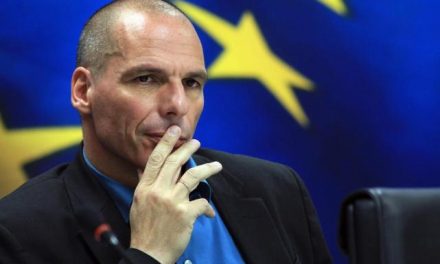Since then, there have been notable improvements in the country’s situation. The success of development and humanitarian aid to Macedonia was punctuated by the 2001 adoption of the Ohrid Framework Agreement. This agreement secured the future of a peaceful democracy and placed the country on a road to reconciliation with ethnic Albanians, who comprise the largest ethnic minority in the republic.
In August 2016, torrential rain caused deadly flash floods in the Macedonian capital of Skopje and neighboring Tetovo, resulting in scores of casualties and heavy damage to homes and infrastructure. A joint team of experts in disaster recovery was dispatched by the EU, the United Nations and the World Bank to identify the causes of the floods and evaluate the wider impact on the Macedonian economy. This international team subsequently defined a reconstruction strategy in a Post-Disaster Needs Assessment underscored by the long-term recovery needs of the affected region.
In addition, the EU also sent €150,000 in humanitarian aid to help people displaced by the disaster. This was followed by humanitarian aid from many countries and relief organizations, including multiple Turkish relief associations, the Republic of Kazakhstan, the Jewish community of the Republic of Macedonia and Bulgaria, to name just a few.
The huge success of humanitarian aid to Macedonia was underlined by the actions of the Macedonian government a year later, when it assisted flood-affected neighbor Albania by sending a humanitarian aid package as part of a comprehensive relief package.
In 2006, the United States provided Macedonia with $1.6 million dollars through the International Trust Fund for Demining and Mine Victims Assistance to help the conflict-riddled republic clear landmines from its territory left over from the 2001 insurgency and hostilities. After Macedonia was able to successfully clear the landmines, The United States praised Macedonia for becoming one of “the growing number of countries that are no longer significantly affected by landmines leftover from past conflicts.”
Groups like Aid Macedonia have consistently advocated for urgent and rapid humanitarian assistance to Macedonia to help the internally displaced within the country and meet their basic daily needs. Aid Macedonia has called upon the international community, local NGOs and the government to sustain lasting peace in Macedonia by providing aid in accordance with “international humanitarian standards.”
The United States Agency for International Development (USAID) has helped power the competitive economy and improve the quality of education in the country. Besides promoting democracy, USAID also encourages citizens towards more active civic engagement and promotes media independence. Working with the Ministry of Youth, USAID works “to ensure that youth are equipped with the knowledge and skills that foster economic growth and reinforce an appreciation for diversity necessary in a multi-ethnic society.”
USAID’s work is so vital to Macedonia that in 2013, when former U.S. President Obama proposed foreign aid cuts to Macedonia as part of a budget allocation, the United Macedonian Diaspora President Metodija Koloski detailed in congressional testimony how USAID funding was vital to maintaining the past successes of Macedonia, including boosting Macedonia’s economy and helping the country recover from the early 1990s trade embargo by Greece.
Macedonia has suffered its share of economic and political crises. Challenges remain in raising income levels, promoting job growth and encouraging entrepreneurship. However, the success of humanitarian aid to Macedonia through many incorporated reforms have significantly improved the economic condition of the country and attracted foreign investments. It is hoped that such humanitarian aid will continue to lead Macedonia down the road to prosperity.
– Mohammed Khalid



















